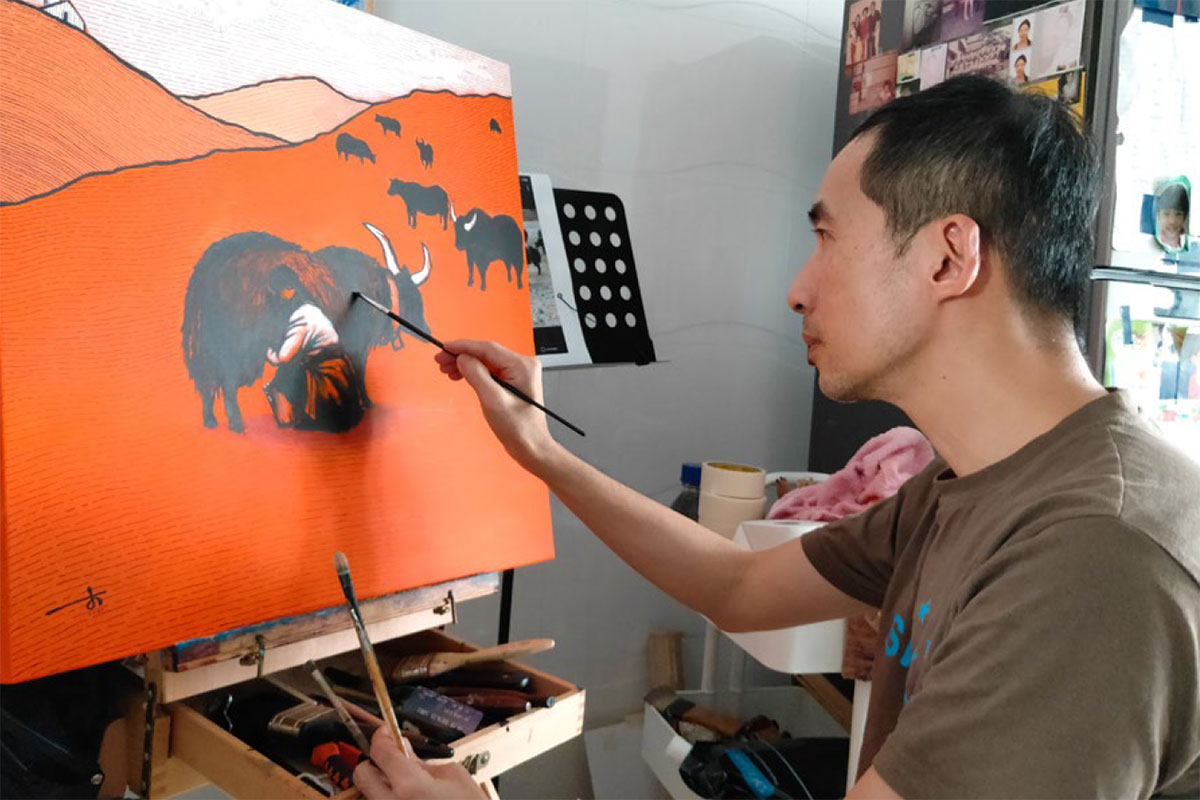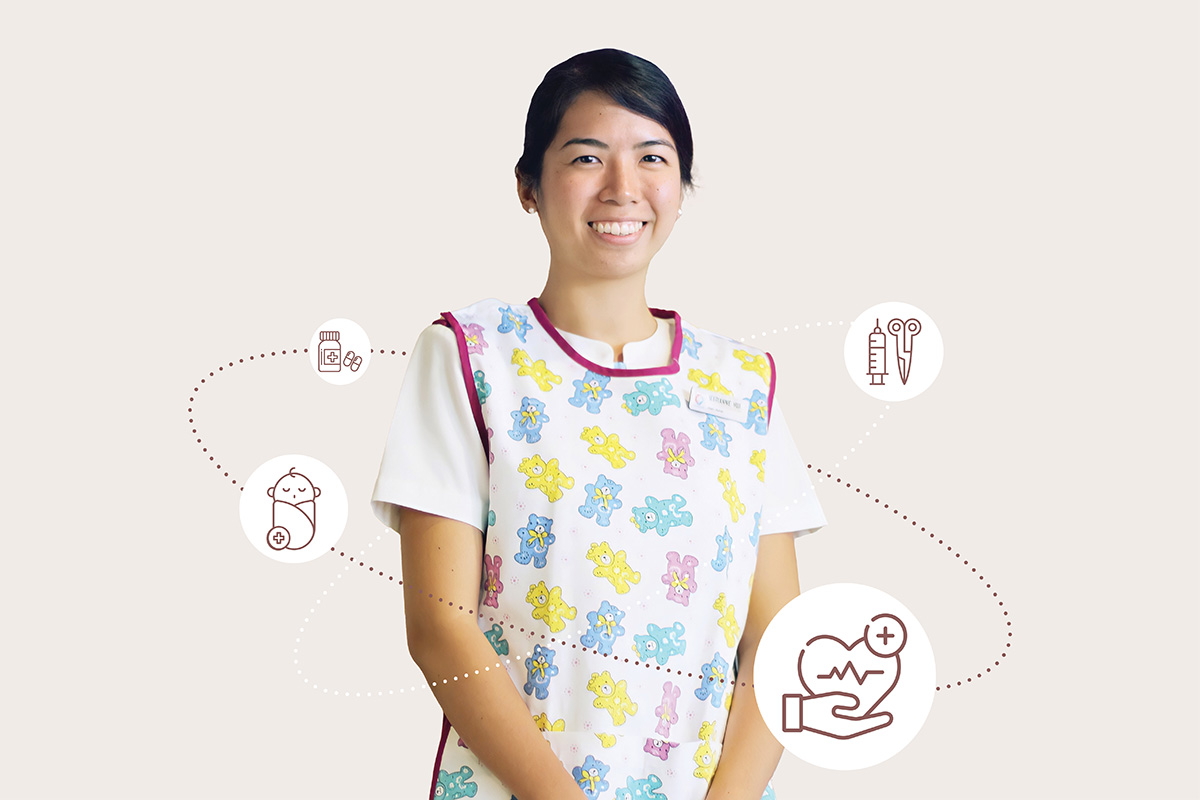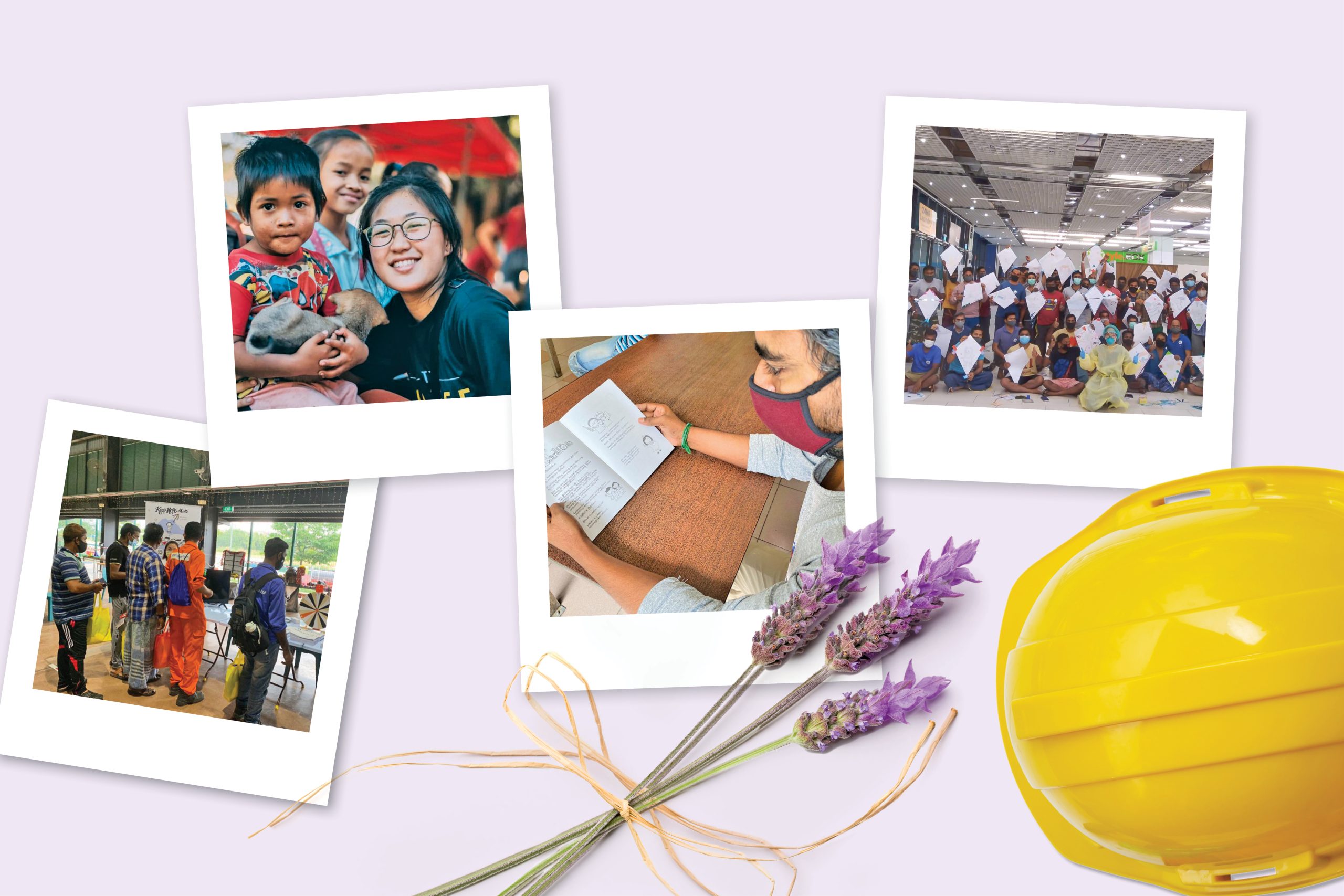
Issue 41 / February 2022
All in the Family
Family Matters
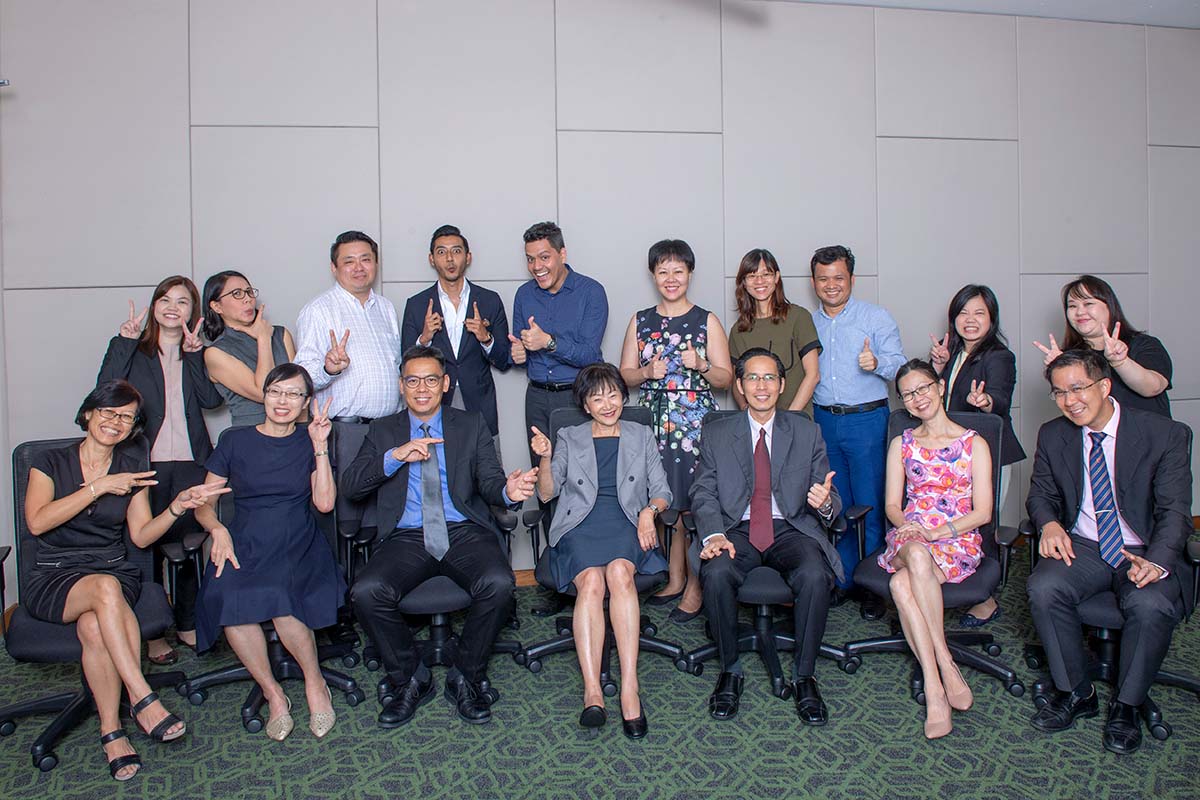
After five years, Professor Doris Young returns to the University of Melbourne. She reflects on her time here as the founding head of the Department of Family Medicine.
The brief
Building and leading a new Department of Family Medicine at National University Health System (NUHS) was my primary focus when I was appointed in February 2018. The main challenge I faced then was how to transform a Division of Family Medicine—with a small number of administrative and faculty staff who were mainly involved in undergraduate teaching—to a world class academic Department of Family Medicine. How could I raise the bar and advance academic Family Medicine when the discipline of Family Medicine was not even recognised as a specialty in Singapore? How could I build capacity and capability in Family Medicine education and research to enhance Family Medicine; not only in NUS, but more broadly in Singapore and internationally?
To support me in achieving my mission, I received enthusiastic encouragement and collaboration from all levels of NUS and NUHS staff. They wanted the Department of Family Medicine to succeed and immediately offered more involvement in the undergraduate curriculum and research start-up funds. Though only a division within the much-larger Department of Medicine, Dean Prof Chong Yap Seng placed the Family Medicine Head of Department (HOD) alongside the other Heads of Departments within NUS Medicine, signalling his emphasis on the development and position of the practice in the context of Singapore’s future healthcare landscape.
Cheering us on
This enabled me to meet and network with other senior colleagues as well as the Directors of Translational Research Programmes. This interaction enabled the Department of Family Medicine to share its strategic plans, positioning education and primary care research as twin engines to turbocharge the growth and development of Family Medicine in NUHS. We received tremendous encouragement and support from colleagues: National University Polyclinics (NUP) clinicians were keen to engage and collaborate with us to develop an NUHS Family Medicine/Primary Care partnership in education, training, research and service delivery, under the leadership of Deputy Chief Executive Mr Chua Song Khim.
“To support me in achieving my mission, I received enthusiastic encouragement and collaboration from all levels of NUS and NUHS staff. They wanted the Department of Family Medicine to succeed and immediately offered more involvement in the undergraduate curriculum and research start-up funds.”
Over the last four years, not only did the Department of Family Medicine flourish and grow in numbers, but individually, each staff member experienced success in achieving their own career goals. For a HOD, that is most meaningful.
The Family Medicine curriculum now spans across four of the five years of the MBBS course and the primary care research programmes are gaining excellent momentum with multiple grants and publications. To engender a research culture amongst our Family Medicine educators, we have established a Family Medicine Scholars programme for early career Family Doctors. Designated the Junior Academic Foundation Programme, this initiative will build an education and research network within NUS/NUHS, that reaches out to practising Family Doctors.
What the new Department of Family Medicine has achieved in the past four years could not have happened without very active support from many senior colleagues. In particular, I want to acknowledge Prof John Eu Li Wong who persuaded me to take up the role and make an impact on Family Medicine in Singapore, and Prof Yeoh Khay Guan for his generous support and trust in my ability to deliver. I want to acknowledge Mr Chua Song Khim, Deputy Chief Executive, NUHS, for his belief in the value of Family Medicine and Primary Care and the vision to bring NUP and the Department of Family Medicine together to establish One Family Medicine/Primary Care within NUHS.
I am grateful also for the unwavering support of NUS Medicine Dean, Prof Chong Yap Seng for his vision of bringing Family Medicine to a higher academic standing in the medical school, Prof Chng Wee Joo, Vice-Dean for Research, and Assoc Prof Lau Tang Ching, Vice-Dean for Education. NUS, which traces its origins to the establishment of the medical school in 1905, has a proud history and enjoys a great reputation as an outstanding university in Asia. It wants to be one of the best universities in the world and is energetic and dynamic. What makes it special is the mix of local and overseas talents working together to deliver education and research excellence. NUS is outward looking and yet at the same time adheres to a strong Singaporean traditional culture. It is proud of its history and traditions, and values its achievements. It is well resourced and backed by an active and generous alumni community. NUS is constantly seeking improvement and is very strategically focused. The can-do attitude is palpable and it energises and brings staff together.
Many colleagues at NUS and NUHS gave the Department of Family Medicine such generous encouragement and support. They provided the fuel to enable this new Department to charge its twin engines of education and research and move forward on its journey to become one of the finest academic departments of Family Medicine internationally.
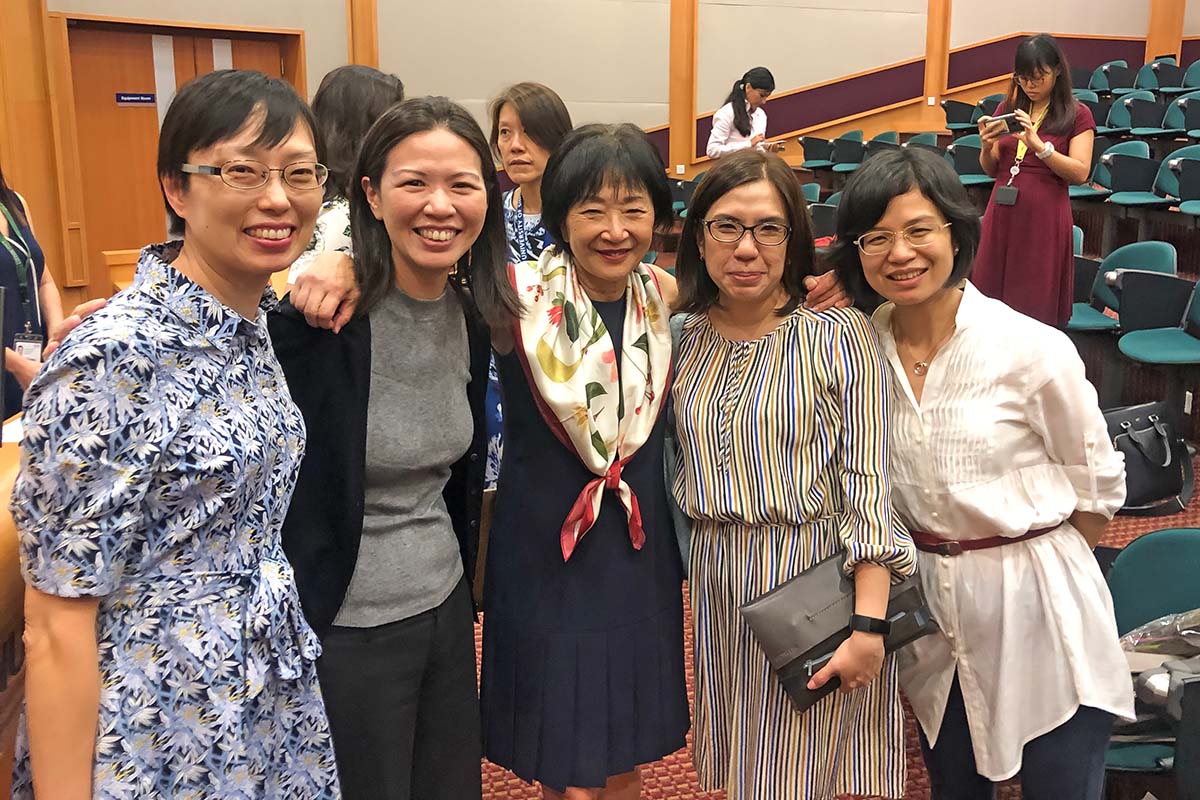
It is impossible to thank individually so many other colleagues with whom I have worked closely over the last four years. Through their encouragement, hard work and friendship they have made my role easier and more enjoyable. The wonderful team in the Department of Family Medicine, with their can-do attitude and their warm friendship—it has been a wonderful journey together.
Memories are made of these
Singapore is a vibrant and attractive international city in Asia. There are so many good memories out of Singapore that will stay with me. I will not forget the magnificent views towards Marina Bay Sands from our apartment and those amazing tropical thunderstorms that can come and go within an hour. I have enjoyed on numerous occasions the beauty of the Botanic Gardens and its hundreds of orchid varieties, as well as many other walks all over the island. The enjoyment of eating a $4.50 chicken rice dish in a bustling hawker centre, with the aroma of various foods in the air, can be just as special as a gourmet meal at one of my favourite Japanese or Italian restaurants.
As I leave Singapore, I am grateful to have made so many new friends and cemented old friendships (including medical alumni from University of Melbourne, who were previously my students). Colleagues I worked with closely became friends and many have family connections in Melbourne. I hope to meet them. Other colleagues from overseas who worked in Singapore also became friends, as we often shared our ‘expat’ experiences. Regrettably, if it were not for COVID-19, I think I could have been even more engaged with my staff and formed more and deeper friendships.
I have had many positive professional experiences in Singapore and am very appreciative of the opportunities I have been given. An early experience was when I was invited by CNA to share my views on ‘the future of Family Medicine in Singapore’. I recounted my experience and described my vision of how Family Medicine should develop in Singapore, along with other key opinion leaders in health. I was very conscious that I came from Australia and that some of my comments could be viewed as being critical of the primary care system in Singapore. That is always a risk when you are candid about how you think any healthcare system can improve, but I hope that my comments were interpreted in the same positive spirit in which they were given.
A second memorable moment was the delivery of a Grand Round ‘New Kid on the Block: Family Medicine in Action’ to showcase the newly established Department of Family Medicine to other colleagues at NUS and NUHS in October 2018. My goal was to describe the foundation of an academic Department of Family Medicine, with education and research as core functions, to train medical students and residents in Family Medicine and to build primary care research.
“I hope to engage with, mentor and support international medical and health sciences students from Singapore, who are studying in Melbourne. I look forward to establishing collaborative education and research links between NUS and the University of Melbourne where I am Professor Emerita.”
Another highlight was delivering the Women in Science and Healthcare (WISH) seminar entitled ‘What’s a girl like you doing in a place like this?’ I was able to share the challenges faced by women academics and proposed the need for a designated leadership position within NUS to promote Equal Opportunity for Women in the Workplace and Career Development.
Memories of a clean, safe, beautiful garden city with amazing architecture and a hot and humid climate. A buzzing tropical city ringing with, those ubiquitous acronyms that Singaporeans seem to love throwing out, and which I still have trouble deciphering. The diversity and quality of cuisines that has led to my developing a fondness for chillies. The ease of flying to other international cities from such a central location. Friendships made and cemented, as well as great work colleagues and a sense of achievement as we worked hard together. But not to worry too much about leaving all of this behind, as I plan to come back for regular visits over the coming years!
There and back again in Melbourne
I am looking forward to a mini-sabbatical, for walks along ocean beaches near where we live at Portsea on the Mornington Peninsula, about 80 minutes’ drive from Melbourne. After taking public transport for seven years in Singapore, I need to learn to drive a car again! I am looking forward to spending unhurried times, catching up with friends and family, whom I haven’t seen over the last two years, due to the pandemic and forced closure of international borders. To increase health span, I will NOT retire, but hopefully will work more years, fewer hours a day, and fewer days in a week and fewer weeks in a year.
I can’t wait to go on my walking trips and travel with no work emails and no urgent meetings!
Living in Singapore in a condo made us appreciate the convenience of modern apartment living, which is a great alternative to a house which most Australians aspire to owning and living in. I will use public transport more often and spend more time exploring the rest of Victoria and Australia, which I didn’t appreciate enough when I lived there.
As for work, I hope to engage with, mentor and support international medical and health sciences students from Singapore, who are studying in Melbourne. Potentially, I can assist with their education needs and connect them back to NUHS and other healthcare clusters to seek job opportunities in Singapore. I look forward to establishing collaborative education and research links between NUS and the University of Melbourne where I am Professor Emerita. Finally, to all my Family Medicine friends and colleagues in NUP, NHGP, SHP, PCNs, Community Hospitals, I wish you all well and look forward to ‘One resident – One Family Doctor’ becoming a reality in 2022 and beyond.
Images were taken before implementation of COVID-19 safety measures.

